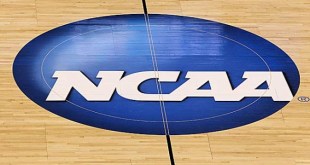In what many predicted to be an inevitability, the daily fantasy sports (DFS) industry’s two leading operators, DraftKings and FanDuel, are taking to the courts to defend the legality of their games. The outcome of the legal proceeding will reverberate nationwide and could have a profound impact on the rapidly-growing DFS marketplace.
Cease-and-Desist
Last month New York Attorney General Eric Schneiderman initiated an investigation into the business operations of DraftKings and FanDuel, following allegations of potential misuse of nonpublic data by a DraftKings employee. An independent investigation has since cleared that employee and the company of any wrongdoing. On November 10, however, the Attorney General upped the ante, sending a self-styled “cease-and-desist” letter to both companies, in which he declared their DFS offerings to be “illegal gambling” under New York law and demanded that they stop accepting “wagers” from New York residents. According to Mr. Schneiderman, via press release, DraftKings and FanDuel were the “leaders of a massive, multibillion-dollar scheme intended to evade law and fleece sports fans across the country.” The New York Attorney General punctuated his conclusion with the proclamation, “Today we have sent a clear message: not in New York, and not on my watch.”
Specifically, the cease-and-desist letters allege a number of violations of New York law. Among other things, the letters claim the DFS operations constitute illegal gambling under the definition set forth in New York Penal Law Sec. 225.00 because (1) contest participants place “bets” on an “event not under [their] control or influence,” and because (2) “winning or losing depends on numerous elements of chance to a ‘material degree.’” Although the New York Attorney General explicitly states that the “legality of traditional fantasy sports has never been seriously questioned in New York,” he distinguishes those season-long games from DFS, claiming that “the sites hosting DFS are in active and full control of the wagering,” because they set the prizes, control relevant variables (such as “salary cap” prices), and “profit directly from the wagering.”
The letters also allege that the games violate the New York State Constitution, which prohibits “pool-selling, book-making, or any other kind of gambling,” and that the companies violated several criminal laws, including those prohibiting knowingly profiting from unlawful gambling activities and knowingly possessing instruments used in a bookmaking scheme. In attacking the companies’ operations, the Attorney General further accuses DraftKings and FanDuel of certain misrepresentations to the public, including “misrepresenting the likelihood that an ordinary player will win the jackpot” because “the top one percent of [the two companies’] winners receive the vast majority of the winnings.”
The Companies’ Response
As expected, neither DraftKings nor FanDuel have taken the threat to their respective businesses lying down. Three days after the Mr. Schneiderman’s cease-and-desist letter, both companies independently filed similar lawsuits seeking, among other things, for the court to declare their DFS operations legal under New York law and enjoin the Attorney General from taking any enforcement actions.
In their complaints against Mr. Schneiderman and the State of New York, FanDuel and DraftKings repeatedly point to a flawed analysis in the Attorney General’s cease-and-desist letter. For example, the operators illuminate the apparent contradictions in Mr. Schneiderman’s letter. On one hand, the Attorney General argues that the DFS contests are game of chance, not skill; but in the same breathe, he criticizes the companies for offering games in which only the top professionals profit at the expense of “casual players.” According to the sites, the fact that a minority of experienced players reap the vast majority of winnings necessarily confirms that their DFS contests are skill-based, because if chance was determinative, prizes would be distributed more evenly between experienced and inexperienced players.
The DFS operators also argue that it is incorrect for the Attorney General to endorse traditional, season-long fantasy sports while at the same time determining that DFS is somehow distinct, and illegal. While no court to date has directly analyzed the legality of DFS, at least one federal court decision seems to support the argument that DFS is a game of skill. Humphrey v. Viacom, 2007 WL 1797648 (D. N.J. 2007). In Humphrey, an individual brought a qui tam action[i] to recover alleged gambling losses against a group of companies operating online fantasy sports leagues. In denying the claim, the federal court held that participants in traditional fantasy sports leagues were not gambling because “[t]he success of a [full-season] fantasy sports team depends on the participants’ skill in selecting players for his or her team, trading players over the course of the season, adding and dropping players for his or her team, and deciding who among his or her players will start and which players will be placed on the bench.” (Emphasis added). The court also stated that, “[a]s a matter of law, the entry fees for Defendants’ fantasy sports leagues are not “bets” or “wagers” because (1) the entry fees are paid unconditionally; (2) the prizes offered to fantasy sports contestants are for amounts certain and are guaranteed to be awarded; and (3) defendants do not compete for the prizes.”[ii]
For similar reasons as in Humphrey, DraftKings and FanDuel now argue that they were not engaging gambling activities under the law. Further, as in traditional fantasy sports contests, DFS games are structured to test the relative proficiency of contest participants in evaluating and selecting (often from within the restraints of a salary cap and in light of the scoring criteria used by contest operator) real-world athletes for their fantasy teams. Participants compete against other participants, not against the contest operator. According to the sites, DFS, in fact, requires at least the same amount of skill, and possibly even more skill, than season-long contests, which the Attorney General and the courts have concluded to be legal and skill-based. DraftKings even offers empirical evidence as proof of its assertion, noting that it commissioned an independent study to compare the results achieved by top-earning DraftKings’ users (skilled participants) against computer lineups generated at random (unskilled participants). In those simulations, the skilled users dramatically outperformed the unskilled participants.
Both sites have sought injunctive relief against the Attorney General. In order to obtain a temporary injunction, which would allow the companies to operate in New York while the legal case is pending, DraftKings and FanDuel need to persuade the reviewing court that they have a likelihood of success on the merits. While the court may give deference to the Attorney General’s interpretation of the law, the sites have a persuasive argument that his application of the relevant law is incorrect and self-defeating. The operators must also persuade the court that they will suffer irreparable harm should an injunction not be granted. If Mr. Schneiderman’s order is carried out, the loss of the substantial New York market could be devastating to these two companies.
Potential Impact
The litigation process is also often a slow one, so it could take many months, if not years, to resolve the conflict pending in Manhattan. Further, the Attorney General’s cease-and-desist letter was only directed at FanDuel and DraftKings, and their respective games. Accordingly, a number of DFS operators have made the decision to continue to operate in New York, so New Yorkers are not without DFS options. The impact of a court ruling, however, could be substantial.
Under many state anti-gambling laws, the question of whether skill or chance is involved in a game is often important in the context of addressing the legality of fantasy sports. In those states where there is no specific legislation authorizing fantasy sports contests played for money, their legality often depends on the state’s interpretation of the degree of “chance” vs. “relative knowledge” or “skill” involved in the contests at issue.
Most states ask whether a contest is “predominately” one of skill or chance in determining whether it legally qualifies as gambling. Generally, an activity is deemed to be one of skill where “greater than 50 percent” of the result is derived from skill. In most cases, where a game is legally one of skill, it is excluded from a state’s definition of gambling. New York, however, utilizes the “material element” test, which asks whether chance is a material element or factor in determining outcome of a game.[iii] This is often a more subjective, and potentially stricter, analysis. While a New York court’s conclusion whether chance is a material element in DFS would not necessarily be binding in other jurisdictions, it may still be persuasive, particularly in those states employing a similar test.[iv]
In the interim, current and former government officials across the country have decried the New York Attorney General’s decision, calling it “hasty,” “draconian,” and an example of “classic government overreach.” It is also certainly possible that the actions taken by Mr. Schneiderman could become a moot point. New York is one of a number of states that is currently considering proposed legislation that would clarify the legal status of DFS and impose certain regulations, including practical consumer protections and, in some cases, taxes or licensing fees.[v] For operators, this sort of piecemeal regulation may not be ideal, but it’s far preferred to a short-sighted, outright ban. Yet, as most states continue to clarify the legal ambiguity surrounding fantasy sports, DFS should continue to emerge as a fun, safe way for people to enhance their sports-watching experience.
[i] A qui tam action is a type of whistleblower lawsuit in which a private party brings an action on behalf of the government. If successful, the whistleblower receives a share of the award. In certain states, qui tam statutes permit the recovery of gambling losses sustained by gamblers in various gaming activities.
[ii] According to the court, the operators were “plainly are not “winners” as a matter of law, but merely parties to an enforceable contract. [The defendant operators] provide substantial consideration in the form of administration of the leagues and the provisions of extensive statistical and analytical services, in exchange for the entry fees paid for participation in the fantasy leagues. At no time do Defendants participate in any bet. Absent such participation, Defendants cannot be “winners” as a matter of law. … To suggest that one can be a winner without risking the possibility of being a loser defies logic and finds no support in the law.”
[iii] Though the plain language of the state’s statutory definition would indicate that the “material element” test would be applied, courts have often provided that the test “is not whether [the game] contains an element of chance or an element of skill, but which is the dominating element that determines the result of the game.” People v. Li Ai Hua, 885 N.Y.S.2d 380, 383 (Crim. Ct. N.Y. Queens County 2009) (emphasis added); see also People, on Complaint of Love v. Schapiro, 77 N.Y.S.2d 726, 728 (1948) (“A game of skill as interpreted by the courts is one where the player predominantly has control over the circumstances of the game, where the element of luck or chance is subordinate to the proficiency or skill of the player in the determination of the outcome of the game.”).
[iv] Some states that may also use the “material element” test include, among others, New Jersey, Missouri, and Oregon.
[v] Both Kansas and Maryland have recently enacted DFS legislation, and a number of states have drafted or proposed legislation in the last year pertaining to DFS, including Illinois, Florida, New Jersey, New York, California, Michigan, and Pennsylvania.
 The Sports Esquires Putting Sports on Trial
The Sports Esquires Putting Sports on Trial





6 comments
Pingback: Legal Pressure Differentiates DraftKings and FanDuel | From The Legal Field
Pingback: Massachusetts Attorney Announces Regulations for Daily Fantasy | The Sports Esquires
Pingback: Sports Law Links | The Sports Esquires
Pingback: Injunction Junction: Drama-Filled Day in New York for Daily Fantasy Sports Companies - The Sports Esquires
Pingback: New York’s Interactive Fantasy Sports Law Faces Constitutional Challenge - The Sports Esquires
Pingback: New York’s Interactive Fantasy Sports Law Faces Constitutional Challenge